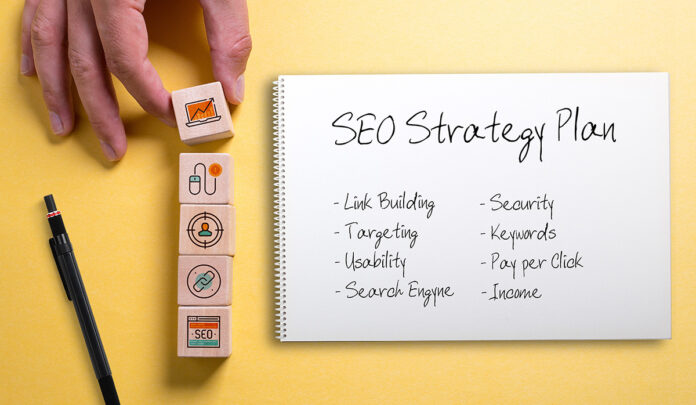Implement a clear and specific strategy for improving organic traffic, gaining top rankings, and increasing organic revenue. So, you will require an effective SEO strategy. There are several fundamental aspects to SEO. With the help of an SEO agency in London, you can achieve your most important objectives.
Several factors must be taken into consideration when developing and executing an SEO strategy. All these factors will affect how your plan looks and what you should think about to achieve your goals. This post aims to examine a few tried-and-true techniques for developing an effective SEO strategy. Let’s dive in.
How to Develop an Effective SEO Strategy
Putting together an SEO plan requires following a set of procedures. These are just suggestions you should keep in mind. You can use them to stay on track and focus on the right things. Let’s go over the steps to succeed.
Review Your SEO Performance
Knowing your website’s performance will help you develop a strategy that will take you to the next level. Therefore, it will help if you start by reviewing your current performance. Analyse your organic visibility, branded or non-branded visitors, and keyword rankings. You can use an array of excellent web tools to gather information for your approach.
Based on this data, you can assess your site’s performance and develop business goals and strategies for the future. Analyse Google Analytics data to understand your performance, including conversion rates, leads, and profits.
Establish Your Goals
Setting goals and understanding your KPIs are essential to developing an SEO plan. You need to identify your goals first before you can create a strategy. Maintain a regular review of your progress to ensure you remain on track. How are goals different from key performance indicators (KPIs)?
A goal is what you want to accomplish. Alternatively, KPIs are metrics that measure your progress toward achieving your goals. It will help if you consider both when developing your SEO strategy.
Choose Your Focus Keywords
After establishing your business goal and KPIs, you must define your keywords. You can reach your objectives once you know what keywords your target market uses to answer their choirs. Finding these keywords is not difficult. Assume you are your potential clients if you already know what niche you’d like to target.
Develop High-Quality Content
You need to conduct thorough research on your target market to develop comprehensive solutions. Valuable content satisfies your target market’s queries, provides helpful insights and enables them to make informed decisions.
You should naturally incorporate keywords into your articles when you write them. It will help if you don’t overuse keywords or include keyword terms in your content all the time. Search engines do not reward you for keyword misuse.
Search engines will penalise you by pushing you lower on the list or removing you entirely from the index. Plus, your visitors will be unsatisfied with your content. For content writing maybe you can take help from an experienced content writing agency in London.
User-Centric Approach
User experience is crucial, especially for SEO rankings. The search giant has emphasised websites providing exceptional user experiences across several platforms. While the traditional rankings approach remains significant, search engines are increasingly focused on websites that deliver excellent user experiences. Therefore, work with your web design team to ensure that your site is navigable and user-friendly and that all links lead to additional information.
Review Your Existing Content
Assess your existing content before creating and releasing new material to find items to improve or include in your categories. Use an online content auditing tool to find areas to improve or fit. During a content audit, you identify what content needs an update, maintenance, or removal. Before developing new content, conduct a content audit of what you already have.
By using existing content, websites are more likely to achieve their goals. You can make informed decisions using the information gathered from an audit. Consider updating existing content to obtain results faster than creating new content.
Make Your Page Titles Engaging
It will help if you write web page titles that are engaging and captivating. Make sure your titles capture the attention of your audience. In the absence of grabbing attention, your visitors will not read your material. You must determine what your audience will gain from reading your content and why it is meaningful to them.
As soon as you figure this out, use strong words and reduce your title to make it easier to understand and remember. Always include your keywords when writing the titles of your headlines.
Review Your Strategy
After creating and implementing your strategy, you must try to improve it. A plan cannot ever be flawless. There will always be ways to grow. The task may include creating material, enhancing existing content, or addressing technical concerns. Making sure you measure and report your results regularly will help you gain a competitive edge.
Conclusion
You can boost the performance of your website by creating an SEO plan. Everyone on your team must understand the goals and tactics. The suggestions in this post might make the process easier for you.

